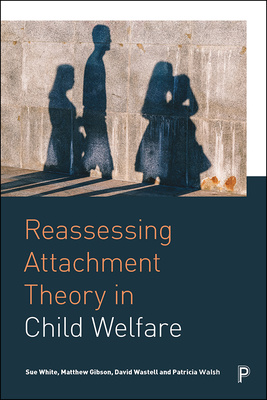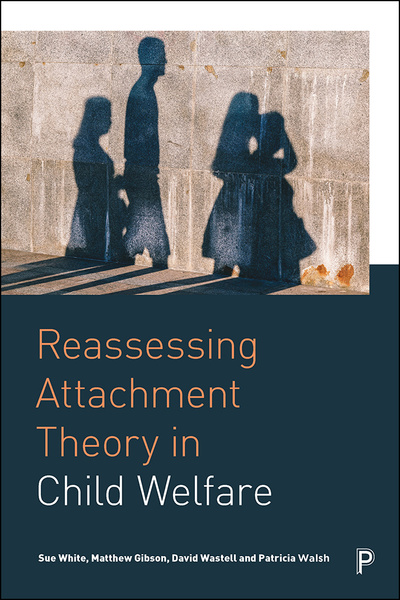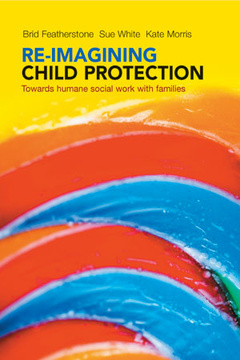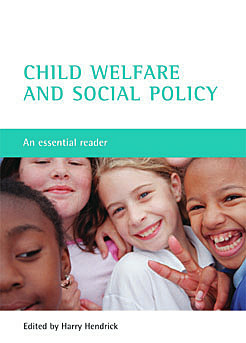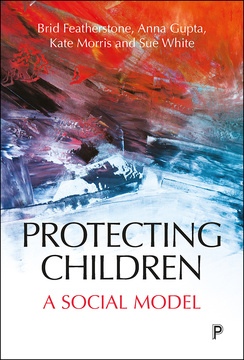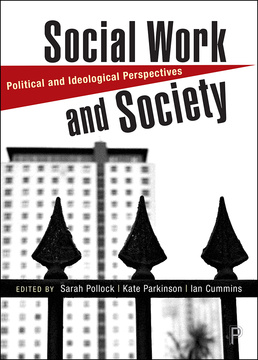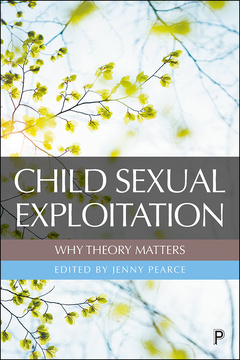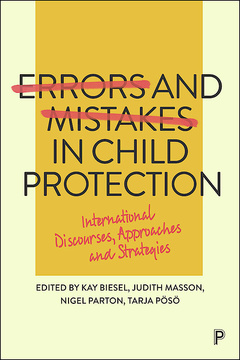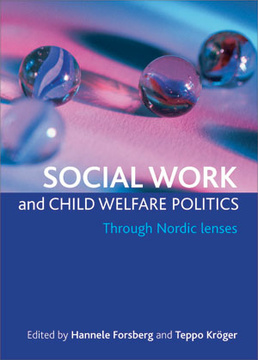Reassessing Attachment Theory in Child Welfare
By Sue White, Matthew Gibson, David Wastell and Patricia Walsh
Published
Dec 4, 2019Page count
152 pagesISBN
978-1447336921Dimensions
234 x 156 mmImprint
Policy PressPublished
Dec 4, 2019Page count
152 pagesISBN
978-1447336914Dimensions
234 x 156 mmImprint
Policy PressPublished
Dec 4, 2019Page count
152 pagesISBN
978-1447336945Dimensions
Imprint
Policy PressPublished
Dec 4, 2019Page count
152 pagesISBN
978-1447336945Dimensions
Imprint
Policy PressThis book offers an analysis and summary of the uses, abuses and limitations of attachment theory in contemporary child welfare practice.
Analysing the primary science and drawing on the authors’ original empirical work, the book shows how attachment theory can distort and influence decision-making. It argues that the dominant view of attachment theory may promote a problematic diagnostic mindset, whilst undervaluing the enduring relationships between children and adults.
The book concludes that attachment theory can still play an important role in child welfare practice, but the balance of the research agenda needs a radical shift towards a sophisticated understanding of the realities of human experience to inform ethical practice.
“This book is very engagingly written and provides a comprehensive and informative critique. I appreciate its balanced presentation of both limitations and value of attachment theory in current contexts”. Pam Joseph, University of Sydney
“This volume adds to the attachment theory (AT) literature in a very significant way both in terms of carefully articulating the political social ecology of AT’s roots but the harm that is being done by misapplication. Those familiar with AT will benefit from the way theory is linked to the history of the profession while those less familiar will be effectively guided through the argument.” British Journal of Social Work
"A valuable perspective on the use of attachment theory and research by practitioners. The authors highlight major discrepancies between research evidence and child welfare practice and offer some timely cautions." Robbie Duschinsky, University of Cambridge
“A very important and thought-provoking book that critiques the development and use of attachment theory in child welfare policy and practice – highlighting serious limitations and contradictions, as well as the possibilities for ethical use in practice.” Anna Gupta, Royal Holloway, University of London
"Very interesting, a good critical consideration of the topic." Michelle Lefevre, University of Sussex
Sue White is Professor of Social Work at the University of Sheffield.
Matthew Gibson is a Senior Lecturer in the Department of Social Work and Social Care at the University of Birmingham.
David Wastell is Emeritus Professor of Information Systems at Nottingham University Business School.
Patricia Walsh recently retired from the School of Social Work and Social Policy at Trinity College Dublin after 25 years as a social work academic.
Preface: becoming attached to attachment theory
Love is a wondrous state: origins and early debates
Social work and the attachment story: a felicitous bond?
Shaping practice: prescribing assessment
Practising attachment theory in child welfare
Exhibiting disorganised attachment: not even wrong?
Breaking the back of love: attachment goes neuro-molecular
Coda: love reawakened?







